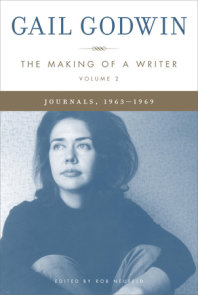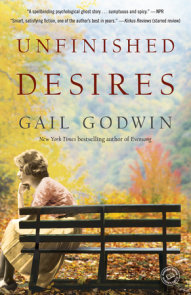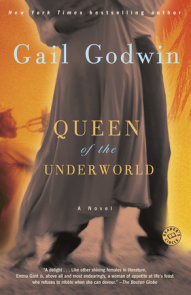

Buy from Other Retailers:
-
$14.95
Jul 10, 1995 | ISBN 9780345396457
Buy from Other Retailers:
Buy the Paperback:
About The Good Husband
"[A] BRILLIANT, WITTY AND PROVOCATIVE NEW NOVEL."
–San Francisco Chronicle
As a young woman, the brilliant and eternally curious Magda Danvers took the academic world by storm. Then, to everyone’s surprise, she married Francis Lake, a mild, midwestern seminarian, who has devoted his life to taking care of his charismatic wife. Now, Magda’s grave illness puts their marriage to its ultimate test.
Though facing her "Final Examination," Magda continues to arouse her visitors with compelling thoughts and questions. Into this provocative atmosphere comes Alice Henry, retreating from family tragedy and a crumbling marriage to novelist Hugo Henry. But is it the incandescence of Magda’s ideas that draws Alice, or the secret of "the good marriage" that she is desperate to discover? For Alice, Hugo, Francis, and Magda will learn that the most ideal relationship–even a perfect marriage–doesn’t come without a price….
"COMPELLING WRITING…REMARKABLY SKILLFUL…Gail Godwin shows herself to be at the height of her considerable power as a storyteller and a writer."
–The Boston Globe
"ONE OF HER FINEST BOOKS…It is not only a well-written story, but a mature and wise one, affirmative in its vision of love, unblinking in its portrayal of tragic loss."
–Atlanta Journal & Constitution
"FASCINATING…[A] BIG SUMPTUOUS BOOK…HER BEST NOVEL."
–Entertainment Weekly
"A BRILLIANTLY CRAFTED NOVEL, full of fun and mischief and resonating with wisdom and moral depth."
–New Woman
A Featured Selection of the Book-of-the-Month Club
About Gail Godwin
Gail Godwin is a three-time National Book Award finalist and the bestselling author of twelve critically acclaimed novels, including A Mother and Two Daughters, Violet Clay, Father Melancholy’s Daughter, Evensong, The Good Husband, Queen of the Underworld, and Unfinished Desires…. More about Gail Godwin
Product Details
Category: Literary Fiction
Paperback | $14.95Published by Ballantine Books
Jul 10, 1995 | 496 Pages | 5-1/2 x 8-1/4 | ISBN 9780345396457
YOU MAY ALSO LIKE

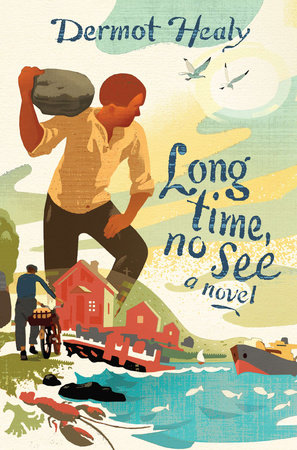
Long Time, No See

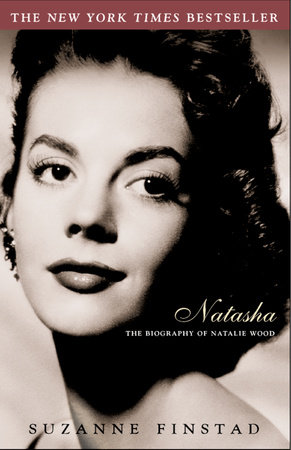
Natasha

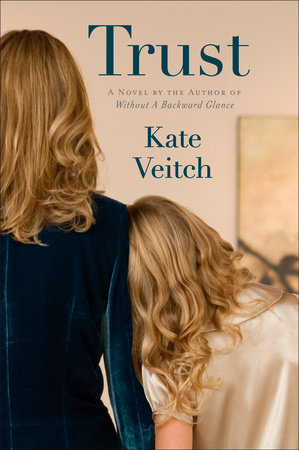
Trust

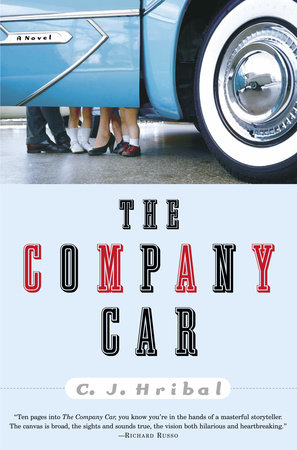
The Company Car

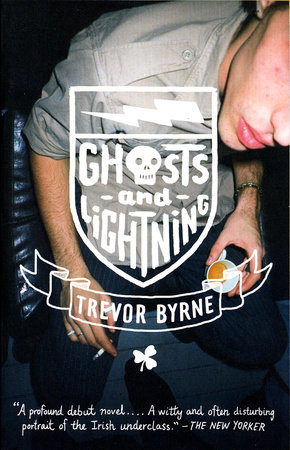
Ghosts and Lightning

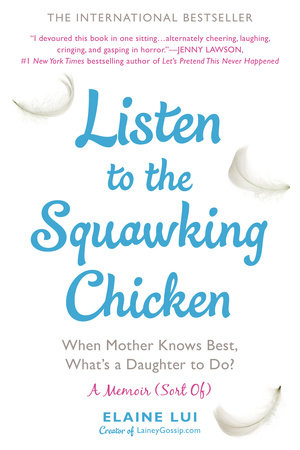
Listen to the Squawking Chicken

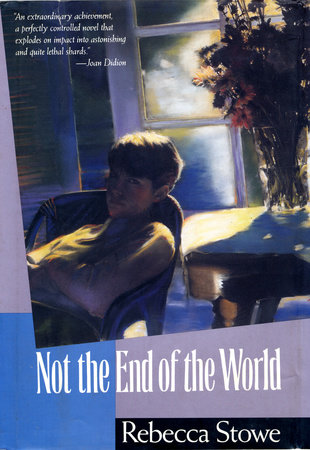
NOT THE END OF THE WORLD

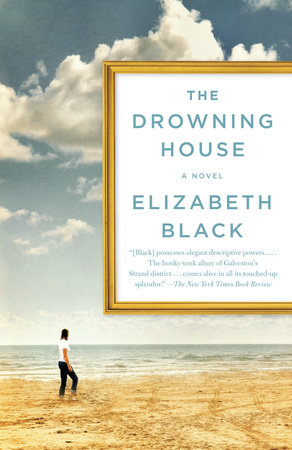
The Drowning House

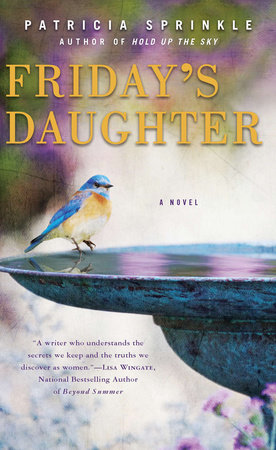
Friday’s Daughter

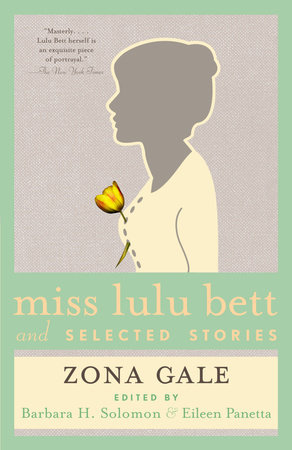
Miss Lulu Bett and Selected Stories
Author Q&A
Jennifer Morgan Gray is an editor and writer who lives in New
York City.
Jennifer Morgan Gray: The title The Good Husband has many
meanings, both literal and figurative. What did you hope to evoke
in choosing this title? Were there any others you considered and
then abandoned?
Gail Godwin: This is one of the very few novels that I’ve written
where the title came with the idea. I meant the title to be ambiguous,
so that the reader would have to start asking, "So just what is
a good husband? Who is the good husband in this book? Could it
be both of them, or neither?" It was chosen exactly at the time that
I thought of creating these four people.
JMG: It’s said that authors often write what they know. As an acclaimed
author with extensive experience in the world of academia,
did you find it liberating to set a novel in a familiar college setting?
Did you deliberately insert elements of satire into the situation and
the various characters–for example, President Harris and his wife,
Leora?
GG: I wrote one other academic novel, The Odd Woman. That was
set in one point of view, that of a particular young woman professor,
and it was a much more naturalistic treatment of a university.
Now, this one has a bit of a satire to it, this college, Aurelia. It’s a
college where fundraising has gotten the upper hand, and it’s the
type of college where I thought it would be possible for these types
to meet. Hugo Henry gets invited at the last minute; Magda Danvers,
if she had become the scholar she started out to be, would be
somewhere else, like maybe Columbia.
When I imagined what the president of the college would be
like, it did creep over into satire, because fund-raisers do have a
way of forgetting the interior and the unseen. But the last we see of
President Harris, he’s flying toward this wretched literary tour with
this bore of a woman he wants to get money out of. He has this serious
moment, when he thinks of what he’s really interested in,
how things going in and out of fashion could ruin whole industries
and transform cultural patterns. He would rather have written a
book on American cultural patterns instead of spending his life
raising money to satisfy other people’s egos.
JMG: In the dedication of The Good Husband, you remark,
"Francis, Alice, Hugo, and Magda are, I must admit, four stimulating
but often puzzling parts of my own character." Which elements
of these characters most perplexed you while you were in the
process of writing this book? Which aspects of your own personality
did you insert into each character? Were there characteristics of
each character that you wished to emulate and to make your own?
GG: A wonderful question. On page 353, Hugo is talking to his
son’s lover and is talking about how writers choose or get chosen
by different subjects. And he says to him, "There’s something
about this story that addresses longings and woes of my own." At
the time I was writing this book, my longings and woes were attracted
to the subject of death. I had never seen anyone die until
right before I wrote this book; my father committed suicide and my
mother died in an auto crash. Actually, before I wrote this book, I
was working on another one, and then I started visiting this dying
professor. He had some of the characteristics I gave Magda–the
sense of humor, the acceptance of using his time to die as a time to
evaluate his life.
Then I had to make up some more characters! I decided that I
wanted to make the dying person a woman because I had read an
article by the Jungian analyst June Singer. She said when you get
too goal-oriented–and it’s ruining your life–just stop for a minute
and imagine that you’re dying. You’re already on your deathbed–
you can’t pay the bills, you can’t go out shopping, somebody else
has to take over. All you can do is just lie there and think of what it
all meant.
That was the scene that attracted me most, but I couldn’t just
have a woman lying there by herself in bed. So out of that came all
these other creatures. Then I wanted to give her a husband who
would seem to serve all of her needs, and yet there’s another side to
that: Perhaps by serving all of her needs so well, he kept her from
taking any more flight. When I got into his personality, I began to
love him because he really is one of those human beings who gets
satisfaction out of serving the needs that he sees around him–I
must say that there’s very little of that in me! And yet I started seeing
how that could be a very relaxing and fulfilling thing: washing
the windows of a monastery or of your own house, making a meal
for someone, keeping things clean. The dark side of that is that a
person like that often does not want to go into his or her own interior,
because it’s too scary. So I matched them up well, because they
can complement each other and they can goad each other.
Hugo Henry is perhaps the most me. Yes, he’s the most me.
Any scene that you see him in, I’ve been there: ruining a vacation in
Switzerland because my books weren’t in the English bookstore,
and always worrying about my literary status. But, thank goodness,
having written Hugo and made fun of him a little helped me
distance myself from that aspect.
And then finally, the woman Hugo marries, Alice. By being so
damaged by what’s happened to her, and so passive, Alice also is a
clean, soft sheet for things to make impressions on. Her happiest
moments in the book seem to come from visiting a woman who is
near the end of her life and who has the luxury to figure out what
she was, and what’s important in life. Magda, of course, comes to
the conclusion that she has been an arouser rather than a fulfiller.
What is most important, now, is that she order her loves and tally
her accounts.
Of course, no one wants to identify with someone who is going
to die, but Magda’s the one who casts the light so everyone can ask
the questions they need to ask in difficult times of transformation.
JMG: How did you manage to integrate humor into what could
have been a bleakly depressing novel? Were those moments of levity
what guided you through writing a book that’s consumed with
death?
GG: She’s wickedly irreverent. She wants to shine light on things
even if it’s unflattering. I just finished another short novel that will
be out in April and that’s all about death. It’s called Evenings at
Five, and some of the early readers and critics have said that it’s
funny as well as being sad. But if you’re true to what your characters
really think and feel and say and do, humor is going to come
into it because that’s the way life is; that’s the way death gets ab-
sorbed by the living. In A Southern Family, a long book of mine
that also has death in it, they’re all going to the funeral and they get
into the limousine and realize that one of them has stepped into
some dog doo of the dead boy’s dog. It rides to the funeral with
them. Everyone is so upset–but at the same time, it’s funny.
In The Good Husband, I was true to Magda. I also let her
say awful things about the people who came to visit and make
up provocative letters to adoring researchers whom she can never
answer–because she can’t read or write anymore.
JMG: The narrative shifts points of view throughout the book, and
the story unfolds from several different perspectives. Why did you
decide to craft the book in this manner? In your opinion, is there
one true narrator, someone you viewed as the true eyes and ears of
the story?
GG: Absolutely not. I wanted to go into all of them and to see how
far into them I could get. Then I started going into more than the
four–I went into the president, into his wife, into the teacher that
takes over Magda’s class. From the beginning, I wanted to have all
the viewpoints. A Southern Family has lots and lots of viewpoints,
but most of my books have been with a first-person narrator or
third person, but staying in one consciousness.
JMG: It must be interesting for you, then, to see the story through
so many different mind-sets.
GG: It is. You think differently. They have different dreams. And
they see the same event from different perspectives.
JMG: The Good Husband doesn’t seem to support the concept of
one perfect soul mate for each individual. In fact, according to
Magda, "Mates are not always matches, and matches are not always
mates." How did this thought guide you as you were writing?
Was it something you considered beforehand, or did it pop up
while you were writing?
GG: It popped up when Magda said that. When she’s lecturing
at the seminary about Blake and his wife, she’s explaining about
how they were mated well but they were not matches. Mrs. Blake
couldn’t even read and could not follow William into his imagination.
When Magda said that, I realized that I had something: Hugo
and Alice are certainly matched, but, reading their scenes closely,
neither of them was ever passionate about the other. They admired
each other; they could talk about whatever needed to be talked
about. She served his needs, and he served hers; she wanted a child,
and he wanted an editor. He admired her calmness and her loveliness,
while she admired his work. So they were matched, but the
passion was left out.
JMG: Do you feel that any of these couples resolved the disconnect
of being mated but not matched?
GG: I don’t think that either of the couples became mated and
matched. When Francis threw Magda’s ashes overboard, he said,
"Now I’m going to do what I want." So he was, in a sense, declaring
his freedom. Although many people have written me and asked
why they didn’t get together, Alice and Francis were certainly not
destined for each other. They were there for each other to help
them get on to the next stage of their lives–whatever that will be.
JMG: Sort of transitional, in a way.
GG: Yes. There are two mates in this book, and they’re married.
The mates are married, and the matches are married. And then
there’s a lot of crossing: Alice feels she could be mated with Francis
because she’s attracted to him and passionate about him, and Hugo
admires Magda’s fire. There’s this dynamic here, like an X. In a
way, they’re like one whole person.
JMG: Do Magda and Francis have the secrets to what makes a marriage
happy and successful? Does their unconventional arrangement
work for or against them?
GG: It certainly is a satisfactory, cozy, successful marriage. The question
is, what did it do to the potential of each of them? If they hadn’t
met each other, would Francis have become a perfect priest? Would
Magda have become a literary star? And is that so important?
Maybe they are enviable because they were comfortable and
they enjoyed their lives together, even though she complained that
he was obtuse and would never go in for self-examination. I think
their marriage was satisfying. She loved traveling with him. As she
writes to the woman who wants to interview her–the letter she
never writes, because she’s unable to do so–she loved seeing him
go out in the morning when they were traveling, knowing that he
just could be serendipitous all day. She writes that he looks like
a cross between her gigolo and her archangel. I think sensually–
all the things about the senses, eating together, traveling together,
sleeping together–it was a very good marriage, and mysterious in
that sense to both of them.
JMG: The most well-adjusted couple in the book is a single-sex
one. How is Laurence and Cal’s relationship a more traditional
"marriage" than the other pairs in this book, in particular Magda
and Francis? Did you deliberately make the most unconventional
(by society’s standards) partnership the most functional one? Why?
GG: I always work from inside my characters, and I try not to plan
ahead for them. Hugo faces the worst thing he could imagine, that
his son is gay. This becomes a point of growth for him, because the
only way that he can start facing it is to pretend he’s writing a story.
And then I had to create these people–Cal, and then Laurence, and
figure out why they would have been attracted to one another. They
have this thing in common: They are providers–there are some in
the world. They both want to provide, on a large scale, to people,
especially children, who have had a hard time. They complement
each other in that Cal is desperately energetic because he’s found
something he cares about, and the older man is more thoughtful
and laid-back and has lots of money. As far as the fact that their
marriage might be more well-adjusted–remember: They’ve just
gotten together!
JMG: They haven’t weathered the storms yet.
GG: I’m sure that if we imagine them ahead, there will come a time
when they have arguments about building one of the shelters. Or
Cal is going to get annoyed with some habit that Laurence has–
who knows what. They’re a new couple. I think if they survive,
they’ll do a great deal of good in the world.
JMG: In The Odd Woman, one of your previous books, a charac-ter
said that "teaching is one-fourth preparation and three-fourths
theater." How is this exhibited in Magda’s behavior in the classroom
and through her interactions with friends and loved ones?
Do you think her flamboyant approach in all things serves to erode
her scholarship, or to augment it?
GG: Her personality is flamboyant. Her personality is self-created,
and she likes you to know that. She chose her own name. She
picked subjects to study that would shock and arouse people. Of
course, this is going to arouse envy in some of her colleagues, and I
never felt that theater hurt in the classroom. It could hurt, perhaps,
if you let it cover your lack of preparation. This quote is from The
Odd Woman, my other university book, from another professor. If
Magda were reading this in a book, she’d probably say, it’s three-fourths
preparation and three-fourths theater–and then let everybody
figure out the mathematics!
Because she did prepare. She adored the summer research she
did for the love of it, collecting things she could challenge and
arouse her students with.
JMG: In The Good Husband, Hugo compares the stages of writing
a novel to the stages in a marriage–with a beginning, middle, and
end. For you, what is the process of writing a novel like? Is it similar
to Hugo’s, or much different?
GG: For me, character is first. In some instances–for example, in
The Good Husband–problem is equally important to the character.
The problem here is, you’re going to die. How do you do it, and
how does it look to those around you? What does it teach them?
Then I have the characters. When Hugo is writing this shipboard
lecture about novels being like a marriage, he’s also sending
a message to his wife, saying, "It’s all right. I know that we’ve gone
through the beginning, we’re now in the middle, and we’re probably
going to have one of those open-ended ends." It’s a spoken letter
to her.
I go for this for my own writing, too. Hugo says that in the beginning,
you’re attracted to something, and there’s a summons.
You’re so attracted that you want to go wherever this story promises
to take you, and wallow in it, and get to the bottom of it. At this
point, if it’s going right, you fall in love with your material.
When you’re in the middle, this is really the hard part. I’m
quoting him now, but also me: The middle of your book begins
when you know pretty much the kind of thing you’ve committed
yourself to. You’ve gotten into the rhythm; you know who’s
going to be in the book, who doesn’t belong in it. You know what
kind of book it’s not going to be. And you still know what you
hope it can be. And this is the same with marriage. The honeymoon
is over, but the middle of the novel has arrived when your excitement
has faded, and you soberly face the limitations and the difficulties
of what’s ahead.
So the first part is attraction, the middle point is chosen. So
now you have to choose. And you’re going to find things in it that
irritate you, just like with a married partner. And you’re either going
to take them out or say, well, this is what I chose.
Then the end. There’s the closed ending, the more conventional
kind where everything gets wrapped up, and the open ending.
That’s exactly what I know I’m going toward in my new book,
Queen of the Underworld. In an open ending, you’re going to get
something different from what you anticipated in the beginning.
And that’s because sometime during the middle of writing it, you
realize that the reality of the story just can’t make a match with
those old anticipations. The story, as I’ve been writing it, has made
me see the necessity of going off in a new direction. Then you get
another little jolt of passion when you realize that the new direction
is exciting you–even if it’s scary or bittersweet. And this isn’t
going to be a satisfying, wrappy-up brand of outcome; it’s going to
be going off into a new direction.
JMG: No happily-ever-afters?
GG: Maybe not. And instead of wrapping up, you see that your
characters have somewhere else to go that is right for them. And
this is going to be more powerful to you and to the reader than the
old satisfaction of seeing them safely home in each other’s arms.
Yes, I subscribe to that. I would nod if I were in Hugo’s audience,
on the ship, and say, "Yes, that’s it."
JMG: The struggle between work and relationships is paramount
in the book. Magda is forced to give up her all-consuming work
due to her impending death; Alice chooses to do so; Hugo is consumed
by his writing; Francis abandons the priesthood for Magda.
Must the two opposing forces always be at odds? How can they be
reconciled–or, for some characters in The Good Husband, is that
simply impossible?
GG: I don’t think that they always have to be at odds. If you are
very, very fortunate, you find the right work and the right person to
go with you. And it certainly helps if that person has work that he
or she cares about, as much as you care about yours. Magda is the
goal-oriented one–she loves her work and is driven by it. Hugo is
the same. Alice needs to get back to work, and indeed she does.
And Francis–he is extremely happy at the end of the book when
he’s bringing something to completion, rebuilding this old seminary
into a retreat center. All of these characters feel happier when
they are working. Hugo is in hell when he isn’t working. So the
thing is to aim for both, as Magda would say.
JMG: It’s interesting that Magda really is the touchstone of this
book for the other characters. Why, in your opinion, does she have
such a profound affect on those around her? Is she a personality
type that welcomes this affection or disdains it?
GG: She is really the fire that they are all gathering around. They all
want some of the excitement and some of the warmth. On page 317,
when Ramirez-Suarez is telling his wife why Magda is so compelling,
he says that that fire was her passion, and that’s what drove
her. That’s what came out of her and attracted others. And for
Francis, it was more compelling than those moribund practices in
the seminaries that were killing off young vocations.
When she’s in bed trying to figure out who she was, and what
she was, she realizes that she has been an arouser; that her vocation,
as it was lived out, has been to arouse and inflame others, and
not to fulfill. She thinks only art can do that. So she’s been totally
true to her fire, and it’s the reflection of her passion for her particular
work that compels these people. Then, of course, she’s
developed her persona around it. Flamboyant hair, flamboyant
clothes.
JMG: Magda refers to her illness as "the Gargoyle," before the
reader even knows what, exactly, is ravaging her body. Why did
you choose to be vague about what Magda was suffering from until
midway into the book, and instead communicate her struggle
through literary and classroom references?
GG: Actually, the president of the college reveals that Magda is dying
of cancer in the opening pages, when he comes to visit her. She,
however, prefers to think of it as a mythical creature. That’s her
style. As she tells Francis, it amuses her to personify this thing as a
living creature in her. She’s its enemy, and it needs to munch on her
to grow bigger.
JMG: In contrast to Hugo and Magda’s strong personalities, Alice
and Francis both display passivity. Do you feel that a spirit, a fire,
is lacking in them that others have (sometimes in overabundance)?
Or are they simply crafted of a different cloth?
GG: They are different. But Alice really had so much loss. Her
mother, father, and brother all wiped out at once. She’s become
kind of punch-drunk, and it’s amazing that she got through Princeton
and became an editor and even got that far. She could have just
lain down and given up all her spirit. I think her work, and then
Hugo, and then the hope of resurrecting everything through having
a child, and then, last of all, falling in love with Francis: These
things kept pulling her out of the abyss, and she made the choices
to keep on living.
At the end, Francis has come far enough to realize that he does
have his own desires. He wants to do what he wants to do, which
is probably going to be more of the same–taking care of other
people. But now, he knows that it’s his passion.
JMG: He delves into himself, as Magda had always wanted him
to do.
GG: Yes. And he even says that, as he’s scattering her ashes overboard:
"Now I’m finally thinking the way that you always wanted
me to think–but too late for you to enjoy it."
JMG: The book features Hugo grappling with the mixed feelings
of his South Carolina upbringing and of the character of the "new
South," mostly from his perch in New York. As a transplanted
Southerner yourself, did you find it cathartic to have a character
like him in the novel?
GG: I purged something from my own past with Hugo. For a
while, I had to live with a family like the Manigaults, because my
stepfather had to move to another town. And so Mother and he left
me behind for two months, so I could finish out the school year
with this family, and there were many scenes that were like Hugo’s
ordeals. I didn’t fit in. These people–knowingly or not–put me
through the tortures that Hugo describes.
JMG: Alice has suffered loss after loss, first of her family, and then
of her baby. In which ways is she a tragic figure? How does she
cope with the tragedies that surround her? How does she stop
"preferring the company of the dead to the living"?
GG: She’s not tragic in the classic sense because she didn’t bring
on her own downfall. She’s just been beaten down by one calamity
after another. And actually, she copes quite well. She has her breakdown
when she needs to, she pulls herself together, and she develops
a trade, a skill. And then, at the end, how does she stop
preferring the company of the dead to the living? She falls in love.
She falls in love with Francis. It doesn’t matter whether she gets
him or not, because it makes her want to live.
JMG: There’s a great deal of writer’s block being experienced in
this story. Hugo’s pen stops cold after the publication of A Month
with the Manigaults, while Magda never writes the much-awaited
sequel to The Book of Hell. Do Francis and Alice suffer anything
that’s tantamount to this affliction? Did you ever battle writer’s
block during the writing of this novel?
GG: I don’t think Francis suffers anything tantamount to writer’s
block. As for Alice, after the death of her child, she can’t do anything.
During this book, I never once battled writer’s block. Before
I started this book, I was about three chapters into the book I
thought I was going to write, and then, when I got this interest in
death, I had to drop it. The times when I’ve had what they call
writer’s block, it usually means that the novel was either miscarried
or stillborn. I’ve never had writer’s block and then finished a novel.
I’ve had problems. For instance, with Violet Clay, I was trying to
make it one kind of novel and it became another. But it still had the
same people in it. I had hoped to write what they call a gothic
novel, but it became too real for that.
JMG: This book is not a "closed narrative," one where everyone
lives happily ever after and all problems are ironed out. Was this a
deliberate choice on your part? Do you think that the reader might
expect Alice and Francis to begin a relationship? Did you ever ponder
a sequel?
GG: I left it open. I knew that Alice and Hugo were going to break
up. I knew that Magda was going to die. I wasn’t sure about Alice
and Francis, because she wanted him so much and he seemed to
like having her around. But when it came right down to it, it didn’t
happen. And many readers wanted it to happen. When this book
was in the editorial process, several editors read it over, and one
said, "Oh, please, please, I want to see Alice go to the airport and
meet Francis when he comes back from the Midwest, where he’s
been building the retreat center. And I want to see them kiss!"
When this reader said that, I thought, "Oh, no, you don’t. That’s
not going to happen." And I never pondered a sequel.
JMG: I’m sure you’ve been deluged with letters from readers, saying,
"Can’t there be another book where Alice and Francis get
together?"
GG: That happened with Father Melancholy, too. And I said
no. Then I ended up writing Evensong [the sequel to Father
Melancholy], where the two very unlikely people get together; the
younger woman and an older priest get married. So . . .
JMG: So never say never?
GG: Never say never!
JMG: Recently, you’ve taken a break from novels to tackle non-fiction
books. Do you plan on continuing that path? What are you
set to write next?
GG: I wrote a short novel, Evenings at Five, which will be out in
April. And I’m writing a novel about a young woman who is a
journalist–I have a feeling that it will turn into two novels because
I want to stay with her for a while longer. I don’t think I’ll ever do
a nonfiction book again. I do love to do short nonfiction pieces. For
instance, a friend of mine is publishing an anthology of snake stories,
poems, and essays. I offered to write one, because the subject
intrigues me, so I’m writing an essay called "My Snakes." Which
means research, and it will be nonfiction, but it will be fifteen pages
at the most. It’s figuring out why I like snakes. I’m just about finished
with that.
But for the rest of my life, I want to write novels.
21 Books You’ve Been Meaning to Read
Category: Literary Fiction
Buy Now

Visit other sites in the Penguin Random House Network
Just for joining you’ll get personalized recommendations on your dashboard daily and features only for members.
Find Out More Join Now Sign InAccount Overview Recommendations Orders Account Details Email Preferences Bookshelf








